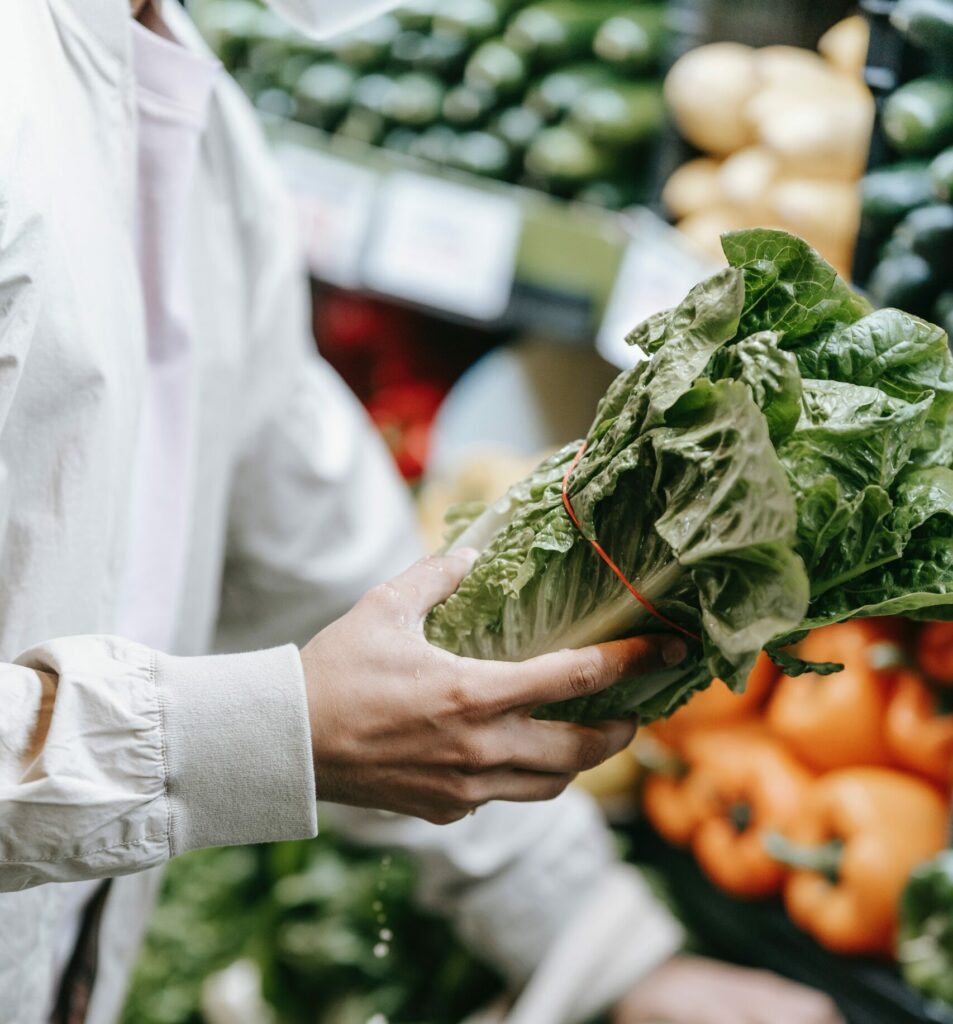Fresh produce microbiomes to address food safety and spoilage while enhancing consumer health benefits.
Researching the microbiome of rockmelons, lettuce, spinach and tomatoes to find novel solutions for reducing microbial spoilage and food safety risks while enhancing the fresh produce health benefits.
The challenge
Microbial spoilage and food safety risks in fresh produce remain significant issues in Australia and worldwide. Traditional approaches to counter these have largely focussed on reducing or eliminating microorganisms from produce. However, these approaches could destroy beneficial microbes which provide probiotic health benefits to consumers and may help naturally fight off pathogens and spoilage organisms. Evidence suggests that beneficial microbes in our food provide multiple health benefits such as enhancing immune function, providing beneficial metabolites (e.g. vitamins, short chain fatty acids etc.), and enhancing the health and diversity of our own gut microbiome. In a world where our food is increasingly sterilised through processing and cooking, raw fresh produce could represent a major ongoing source of “good” microbes in our diets.
Our response

Credit – Michael Burrows
Whole-of-microbiome approaches which consider all microbes inhabiting fresh produce, both “good” and “bad”, could reveal multiple novel solutions for reducing microbial spoilage and food safety risks while simultaneously enhancing fresh produce health benefits. CSIRO researchers are investigating these opportunities further through use of powerful multi-omic techniques. These tools overcome many limitations associated with traditional culture-based methods and provide more detailed, holistic characterisations of entire microbial communities. These tools can help reveal microbiome structure (what microbes are present), functions (what they are doing) and dynamic interactions which govern how “good” and “bad” microbes emerge and proliferate in fresh produce.
MOSH researchers are characterising the microbiomes inhabiting spinach, rockmelons, lettuce and tomatoes to develop initial microbiome databases for each. These are expected to assist industry in assessing spoilage and consumer health risks associated with each produce type. Identification of resilient, highly competitive “core microbiomes” that are strongly conserved across produce types could additionally yield novel food safety and shelf-life opportunities. Moreover, researchers are investigating how microbiomes are transferred from the environment to fresh produce, and subsequently to the human gut. It is known that pathogens from the environment can contaminate fresh produce, enter the human gut and cause disease. However, the role of the fresh produce microbiome in this process remains poorly understood. Our team is investigating how environmentally-derived microbiomes (e.g. from irrigation water) influence the fresh produce microbiome, how these communities survive the human gastrointestinal tract, and potential implications for human health.
Hungry for more? Download Penny’s podcast!
Dr Penny Galbraith discusses the vital role our gut microbiome plays in overall health and wellbeing. Learn how the food we eat—and what we do to it in our kitchens—can influence the communities of beneficial bacteria that support us beyond the gut. From the science of fresh produce safety to practical tips for diversifying your microbiome, this episode offers expert insights into better food quality and nutrition. Discover the answers to questions about mould, cooking, peeling, fermented foods, and even the famous “5-second rule.”
The team
Dr Penny Galbraith – CERC Postdoctoral Fellow, Applied Microbiology
Dr Narelle Fegan – Principal Research Scientist, Food Microbiology
Dr Lesley Duffy – Team leader, Applied Microbiology
Dr Jess Gray – Postdoctoral Fellow, Food Microbiology
Glen Mellor – Senior Experimental Scientist, Applied Microbiology
Sean Moore – Experimental Scientist, Food Microbiology
